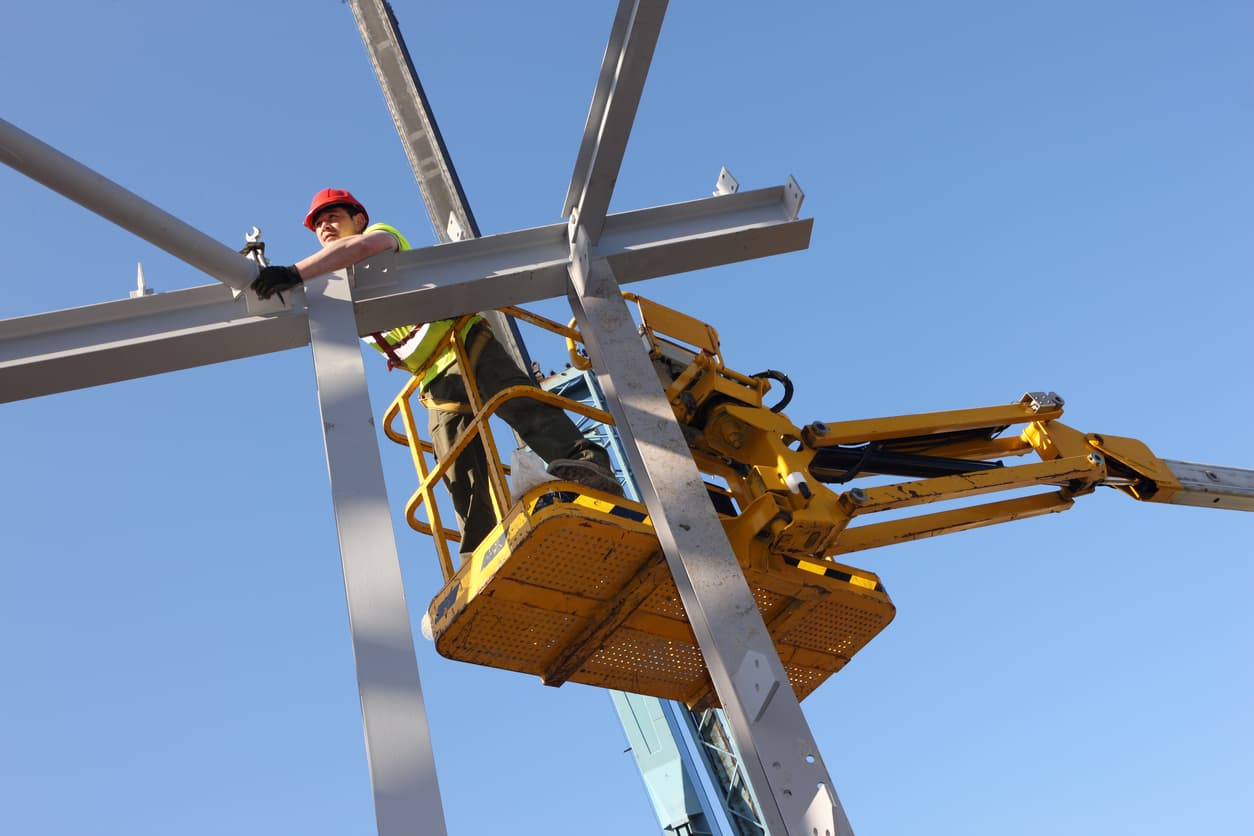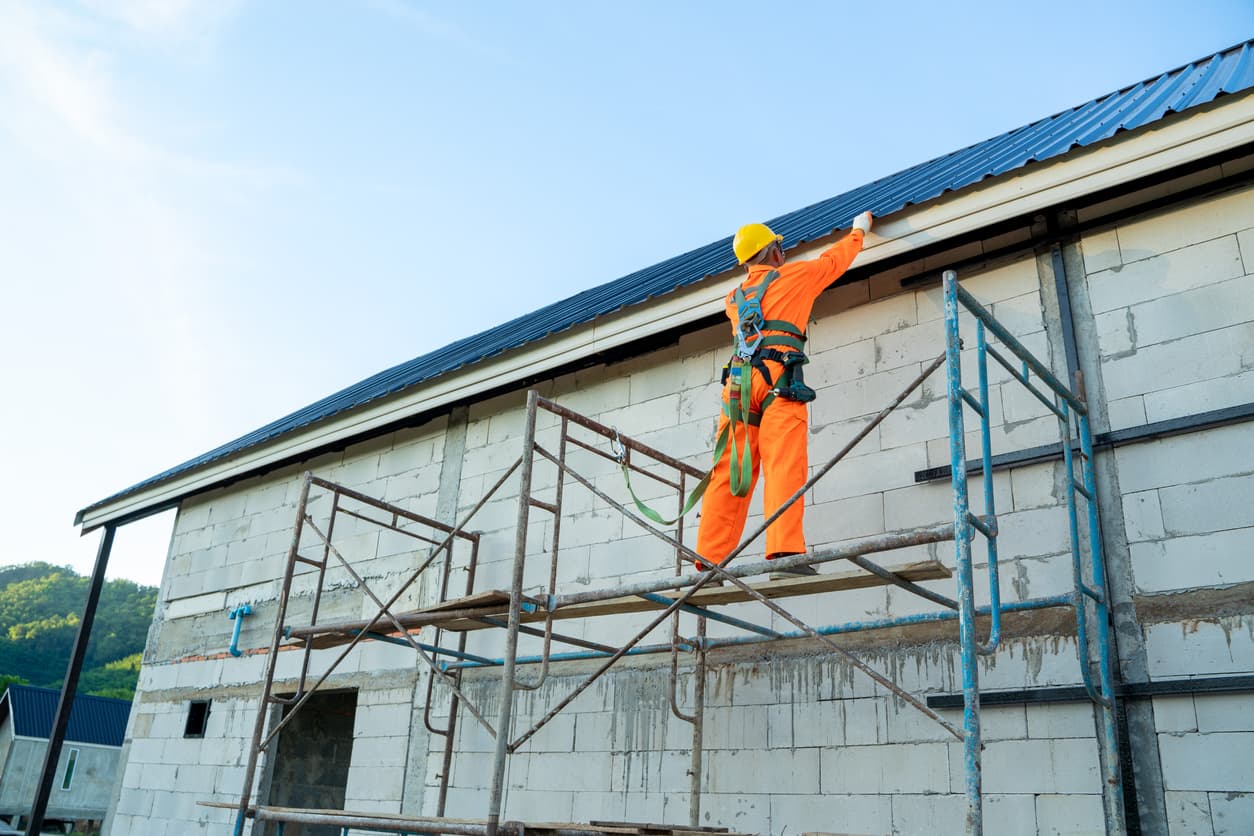The New Year marks the perfect time for businesses to assess their current health and safety strategy, making any necessary changes and resolutions to follow in the upcoming year.
In construction, having efficient health and safety procedures is vital to ensure the safety of workers, as, in the past year alone, 43 workers were fatally injured in the construction sector in the UK.
With an increased risk of danger in this industry, it is crucial for businesses to refresh health and safety procedures and training, to ensure everyone’s safety. At Boss Training, we are on hand to help, offering a range of safety training services.

Reviewing Current Health and Safety Policies
No matter your industry, the law states that every business must have a policy for managing health and safety. For some companies, the health and safety policy is set out when the business is initially created and is not adjusted until an incident occurs. However, this type of policy should be renewed annually to avoid incidents.
The start of a new year is the prime time to revisit the business’ health and safety policy, reviewing any legislation changes and adding any further guidelines that have been posted by the Health and Safety Executive (HSE). Looking into the future, a goal for your company can be to review the policy annually, ensuring that the policy and practices of your operation are up to date and the worker’s safety is a top priority.
Carrying Out Regular Risk Assessments
A risk assessment is a term used to describe a review of current procedures, identifying any hazards and risk factors that could cause harm or increase the risk of danger. Carrying out a risk assessment works in conjunction with a businesses health and safety policy, as any issues flagged by the review can be used to form new policies.
A regular risk assessment is essential for all companies, mainly manual labour jobs, as work in this industry involves operating potentially dangerous equipment. There is an increased risk of danger in places such as construction sites compared to an office, so it is essential that your company undertakes risk assessments regularly to minimise the risk of potential injury.
The main stages of any risk assessment are simple:
Identify the risk – This is simply recognising any procedure that may pose a potential threat within the workplace.
Evaluate the risk – The risk identified is then investigated in further detail to determine the possible outcomes.
Apply control measures – This ties in with a health and safety policy in which actions are put in place to minimise the risk and ensure the potential danger is avoided.

First Aid
Though it is not a legal requirement that all employees or an employer be first aid trained, an individual must be appointed to take care of first aid for the company. In the event of an emergency, this person must take charge and administer first aid to the injured individual. In this case, it is beneficial to have, at least, one fully first aid trained individual on shift at all times as this ensures the correct medical help is given and decreases the risk of severe damage.
A useful new year resolution for your business, would be to make sure that several employees sit an emergency first aid. The more first aid trained employees/employers in a company means that if an incident occurs, it can be dealt with immediately, and anyone injured can receive medical help onsite. At Boss Training, we offer the 1-day emergency first aid training course, valid for three years.
Setting Training Time Aside for Employees
Another popular new year resolution for businesses looking at their health and safety, is making sure employees get a dedicated amount of training time per month. As part of a company’s induction process, employees are likely to receive initial training for their job. In the case of construction and similar industries, this involves training on how to use equipment and machinery, which is vital as misuse could result in injury.
Training time allows employees to take time out of their work to focus on developing their skills. In the case of working with machinery and equipment, it will enable employees to refresh their working practices to ensure they are working safely. Training time also offers employees the opportunity to take further training courses to benefit their work and pursue a personal interest. This could involve training for an area they don’t currently work in but are interested in and would like to pursue in the future.
Safety Training Courses with Boss Training
At Boss Training, we offer a variety of construction training courses alongside health and safety training courses. Our extensive training courses include IPAF training, PASMA training, UKATA certified asbestos awareness training & non-licensed asbestos removal courses, as well as a full range of CITB courses. With our training courses, you can learn various new skills whilst ensuring that you’re carrying out safe practices within the workplace.
We also offer online health and safety training for those who can’t attend in-person sessions, making it easier and more accessible for everyone to undertake training from the comfort of their home or office.

For further information on our courses and how to book, contact us today, and one of our friendly team members will assist you with any of your queries.